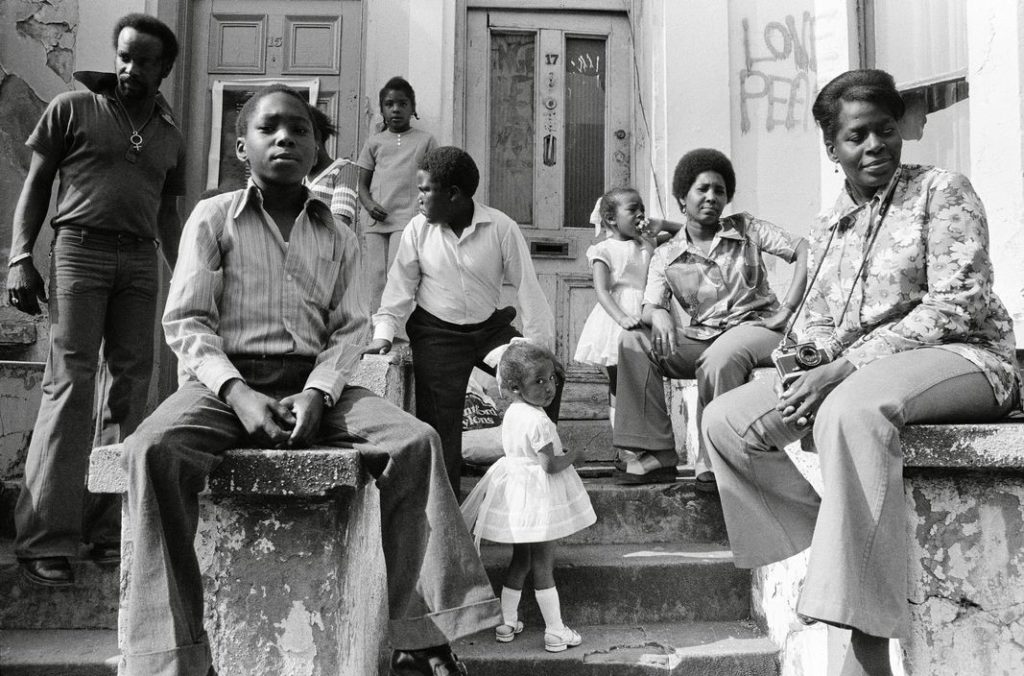Isaac Gordon (b. 1927): Home and Family
“My body is getting old now.
I think everybody should die on them born spot.” (33)
Isaac focuses on home life throughout his memoir, he travels a lot after moving away from his home in Jamaica at a young age (which is not specified but I gather it to be around 14). In chapter Two Isaac talks of the farm work that he did with his Father, he would “get up sometime at 4 o’ clock in the morning to work.” and then would get home late and “sit on the chair in the kitchen and sleep” (6). This shows that due to the nature of his work, Isaac did not spend much time at his home and therefore a close family home did not bare significance on his life, which could be mirrored or, in fact, juxtaposed by his later family life with his own children.
Chapter three through to six are about where, geographically, he calls home for these short periods of time that he switches jobs, and little did Isaac know that when he moved to England, he would stay there indefinitely. Isaac, throughout his memoir, talks of his return to Jamaica, Isaac said that he “would like to see all [his] family… [he] would like to see Jamaica.” (31). Isaac even dedicates his final chapter to discuss his inability to return home and how that makes him feel, which will be further developed in my final post about migration, immigration and emigration.

Family is important to Isaac, more so at the beginning of the memoir when he tells the reader of his childhood, specifically how his mother left when he was born, leaving his Father to be Isaac’s primary caregiver. The challenges that Isaac faced in his early years shaped his behaviour and had a huge impression on his life. The lack of a female nurturing role is significant, as Isaac would have been brought up with tough love from his Father, arguably making him a harder worker. I feel as though Isaac gives a fresh approach to family life in the 1930s/40s, as stereotypically it would have been the Father who left the Mother to look after the child. However, Isaac does not tell us why his mother left, just that she “leave the district when [he] small, and went to St. Annes.” (1). Isaac still had contact with his Mother throughout his life, even going to stay with her when his Father went to work in England and he wanted to stay in Jamaica working on the farm.
We learn early on in Isaac’s memoir that his Father allowed for him to leave school at a young age and work on the farm with him. Isaac’s Father said “since [he] won’t go to school, ‘Go to work with me. You going to be sorry later on.” (2). His Father showed discipline in this decision and stayed to the conventions of a Father. However, this does then make me wonder, who played the nurturing role in his life? Especially with him leaving school at such a young age, he would not have had the nurturing role of a teacher as well as a mother.

To conclude on my post about home and family, Isaac does not focus on his own family that he has made. He tells us that he has a wife and “two daughters… going to school now, and them reading very nice.” (30). Isaac said when he came to England he “did very lonely,” it was only when he met his wife that he was happy (30). From reading a book by Wendy Webster I think that this could have been due to the housing of black migrants from 1945-64. Isaac does not talk about the nature of his home in England, however I can expect that it was not the best situation due to “racism throughout all sectors of the housing market” in England at the time that Isaac was living there (Webster, 1998, 173). Though this is the case, Isaac tells us that he is “very happy in [his] life.” showing that it does not matter where he is or the state of the society, he is happy wherever his family is (30).
Works Cited:
Gordon, Isaac. ‘Going Where the Work is’. Burnett Archive of Working Class Autobiographies, University of Brunel Library, Special Collection Library, vol. 2:327.
Webster, Wendy. Imagining Home: Gender, ‘Race’ and National Identity, 1945-64. London: UCL, 1998.

Leave a Reply